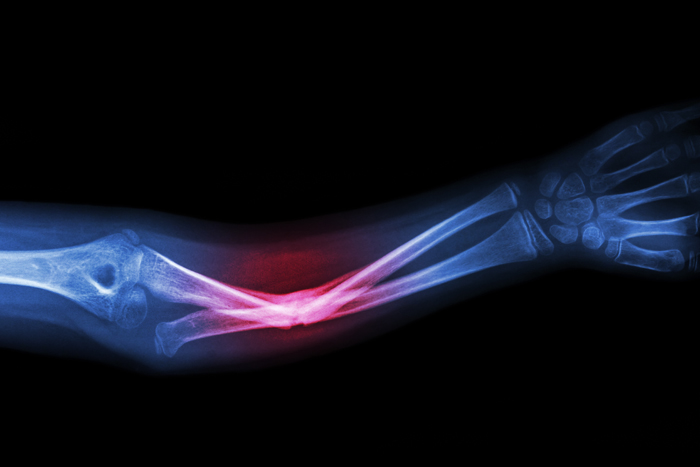Management of Open Fractures Treatment & Diagnostics in Tardeo, Mumbai
Management of Open Fractures
Orthopedic surgeons prescribe surgery methods, depending on the severity of an injury or an orthopedic condition. These procedures may include arthroscopy or open surgeries. Arthroscopy is a procedure to check and treat problems in affected joints, i.e. in the knee, shoulder, wrist, hip, elbow and ankle. It is less traumatic than open surgeries and provides faster healing. But arthroscopy is generally not suited for severe wounds. For severe injuries like open fractures, open surgeries are recommended.

What is an open fracture?
An open fracture, also known as a compound fracture, is a fracture in which the skin around the site of the broken bone is torn apart. It damages the soft tissues around the bones, muscles, nerves, tendons, veins, etc.
To seek treatment, you can search online for an orthopedic surgeon near me or an orthopedic hospital near me.
What causes an open fracture?
One can suffer an open fracture from gunshot wounds, falling from a height or a road accident.
How is an open fracture diagnosed?
At first, a surgeon checks for any other injuries apart from orthopedic injuries and asks for the patient's medical history.
After stabilizing the patient, orthopedic injuries are examined to assess the damage to tissues, nerves and circulation.
An X-ray is done after the physical examination to check if there is any dislocation.
When do you need to see a doctor?
If you feel pain, redness, swelling, numbness, loss of movement in any joint, you should immediately consult a doctor.
Request an appointment at Apollo Spectra Hospital, Tardeo, Mumbai.
Call 1860 500 2244 to book an appointment.
How is an open fracture managed or treated?
Immediate surgery is the best way to get all your wounds cleaned up before infection starts spreading.
Doctors start with wound debridement to stop the infection from spreading. Under it, the doctors remove all the contaminated things, including damaged tissues, from the wound. They then progress with wound irrigation, a non-invasive procedure by which they wash the injury with a saline solution.
There are two types of surgeries by which open fractures are managed.
- Internal Fixation
Internal fixation is a method by which bones are reconnected with the help of rods, wires, plates, etc. A surgeon places one of these inside the bones to get them back in the correct places. After fixing the fracture, it is immobilized with a cast or a sling until the bone is adequately healed.
- External Fixation
External fixation is chosen when it is not possible to do internal fixation. During this procedure, rods inserted in the bones are attached to a stabilizing structure outside the body. The stabilizing tool can either be kept till the internal fixing is completed or until the wound is fully healed.
What are the complications associated with the management of open fractures?
- Infection
Bacteria can infect the wound during the healing process or after it's healed. It can become a chronic infection if not taken care of on time, leading to other surgeries.
- Compartment syndrome
Arms or legs start to swell, building pressure in the muscles thereby causing severe pain in the wound. If not operated on time, it can lead to loss of motion in joints.
When you can return to routine activities depends upon the type and severity of the fracture and how fast the wound heals.
Conclusion
With advancements in technology, new techniques are being devised to heal open fractures in a better way. Specialists are also researching new surgery methods that are less painful.
The fixator is usually worn for four to twelve months. But it also depends upon the severity of the fracture and the duration of your recovery.
Exercising is crucial after the surgery for strengthening muscles and attaining movement and flexibility in joints. You can take help from physiotherapists in this regard.
It usually heals in 7 to 8 weeks. But if the injury is deep, it can take more than 19 to 20 weeks to heal.
Our Top Specialities
NOTICE BOARD
CONTACT US
CONTACT US
 Book Appointment
Book Appointment


.svg)
.svg)
.svg)
.svg)








